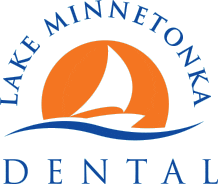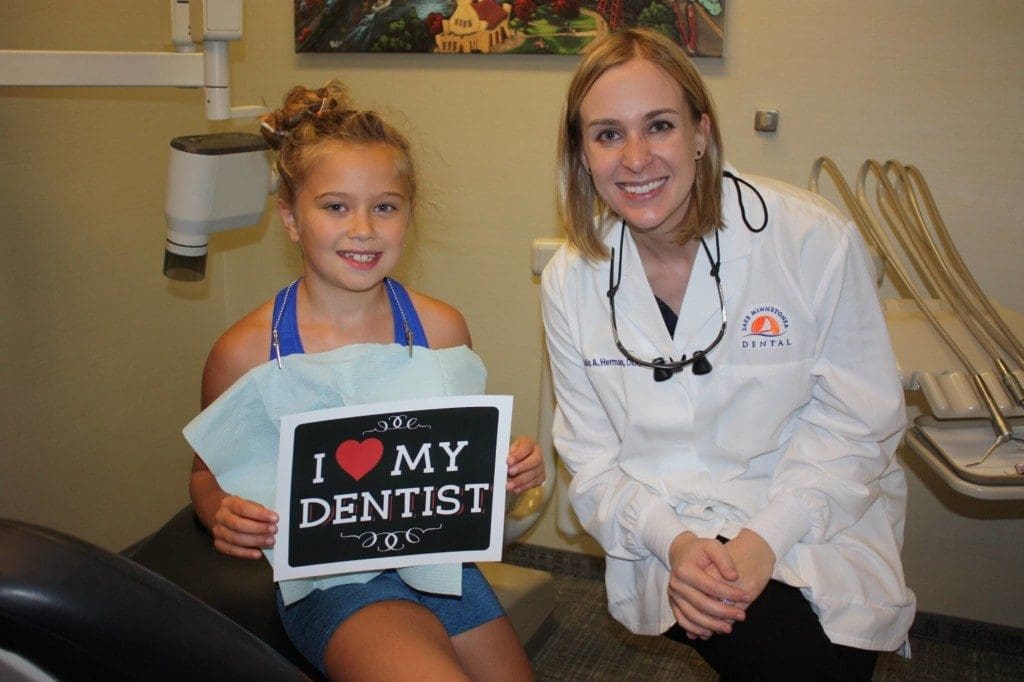Ages 0-2: The Early Visits
There’s not much of a need to see a dentist or worry about your child’s teeth before they first emerge. If you’re really concerned, a warm, damp towel can be used to wipe down their gums after breastfeeding. Once the first tooth erupts, it’s time to make an appointment with a dentist, like the ones at Lake Minnetonka Dental. At this initial appointment, the dentist will examine your child’s emerging teeth and whether they are growing in properly. Generally, this is a routine appointment without much need for concern unless the dentist spots an irregularity. If everything seems fine, the rest of the appointment will be spent advising you on how to care for your baby over the next few years, including:
– Oral hygiene care. When you’re at home, teeth brushing should become a routine. Before all the teeth have emerged, a soft baby toothbrush will do, but toothpaste is not necessary. As more teeth begin to grow in, a small amount of fluoridated toothpaste can be used, but make sure they spit it out afterwards!
– Preventative Dentistry. It’s suggested that you bring your children to the dentist once every 6 months. Most appointments will be simple oral examinations or light teeth cleanings. If the dentist notices any deficiencies or problems, fluoride supplements may be advised.
– Diet and nutrition plan. Once you begin to wean your child off breast milk, it’s important to provide foods that will strengthen their teeth. Most baby food has added supplementary nutrients, but when your child starts eating solid foods, your dentist can offer advice on which foods will be healthy for their teeth and which ones to avoid.
Ages 2-7: The Baby Teeth Years
By your child’s second birthday, they should have all or most of their baby teeth. By their third birthday, all their primary teeth should have grown in and begun to straighten in position. From there, these teeth can handle solid foods and be cleaned routinely. You should maintain biannual visits to the dentist, during which you will discuss:
– Encouraging independent teeth brushing. As your child grows, you will not be able to supervise their oral hygiene habits every day. That’s why it’s important to get them used to brushing and cleaning without your help. Originally, supervision will help keep them from forgetting or rushing, but they’ll eventually internalize the habit themselves.
– Preventative Dentistry. The dentist will begin cleaning plaque from your child’s teeth, preserving the health of each tooth. Additional fluoride treatments may be added to prevent tooth decay.
– Discouraging bad habits. Thumb-sucking and nail-biting may seem like harmless habits, but this is not the case. Nail-biting can grind down teeth and thumb-sucking can cause your teeth to grow in poorly. Helping your child break these habits now will help their oral hygiene and ensure it’s not a problem in the future.
Ages 7-12: The Baby Teeth Years
Your child can begin to lose their baby teeth from as young as 7 years old. Their new, adult teeth will start erupting and permanently filling their smile. While this is a fun time for the tooth fairy, it’s also important to focus on:
– Discussing orthodontic care. It is a little early to actually apply braces or aligners, but the ADA advises talking to your dentist about orthodontic options for your child. This consultation can help reveal how their teeth are developing and whether they will grow into alignment. Not every child needs braces, but it’s best to know beforehand so that you can prepare if they are required.
– Avoiding oral injuries. With their adult teeth still growing in, this is a time of vulnerability for your child. It’s also the age range where many children start to play rougher and more competitive sports. If you’re concerned about oral injuries with your child, the Lake Minnetonka dentists suggest using a mouthguard to keep their teeth safe during a sudden impact.
Ages 12+: The Teen Years
By their twelfth birthday, your child will likely have all their adult teeth. Most of the regular cleaning, like brushing and flossing, should be done themselves. This is the time where you should consider more forward-thinking treatments, like:
– Braces and orthodontics. Once all their permanent teeth have emerged, your child is eligible for braces. It’s important to note that a misaligned tooth which has not finished emerging could still straighten over time. There are a number of benefits to orthodontics, though. Not only do they straighten teeth, they also can correct bite alignment. There are other treatments apart from braces, like Invisalign, so be sure to discuss all available options with your dentist.
– Wisdom teeth extraction. Wisdom teeth are normally the last set of teeth to grow in, and often cause complications when they arrive. They come in fairly slowly, so there will be plenty of time for the dentist to identify if their removal is necessary, as long as your child is maintaining their 6-month checkups. While most dentists can examine the tooth with intraoral scans or other dental technology, your child may also be able to tell if they are experiencing discomfort in the back of their jaw.
– Cosmetic Dentistry treatments. While orthodontics are the most common dental treatment for teens, your dentist may advise going a step further with cosmetic dentistry. Generally these procedures are not suggested for younger patients, but they can be discussed with your dentist if you’re concerned.

If you have more questions, contact Lake Minnetonka Dental today! Not every child has the same path with their dental health and there will always be unexpected roadblocks along the way. If you have any questions about your child’s oral health, the team at Lake Minnetonka Dental is happy to help. We are an experienced family dentistry team, and have helped many children with their teeth over the years. You’re welcome to make an appointment at any time, and we can provide a more detailed walkthrough of your child’s teeth and how they will develop.

As a mom, you’re constantly having to solve problems, but don’t let dentistry be one of them! We will be happy to treat you and your whole family. Our offices are located 109 Bushaway Rd #300, Wayzata, MN 55391. You can also contact us online or call us at 952-388-2727 to book an appointment.

